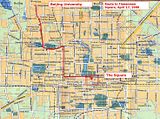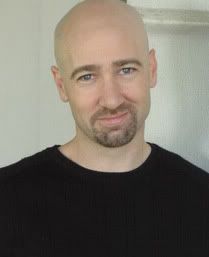China Stories Pt 23: Back to CBS
More than 10,000 people took over Beijing's central square on Tuesday night in a rally for democracy. Several thousand students then marched to the Communist Party headquarters, where those in the front of the crowd tried to force their way in to see the nation's leaders.
A crowd defying a ban on public protests swelled to more than 100,000 Friday night in Beijing's central square to press demands for more democracy. It was by far the biggest protest in China since the end of the Maoist era more than a dozen years ago.
- New York Times, April 22, 1989
Events came in a rush, both the political events that were unfolding, as well as those on a smaller scale. For instance, I'm not sure exactly when we went back to work at CBS, but it couldn't have been long after that first protest march. I remember that at first, I was concerned about missing classes, although the program coordinator was sympathetic. In any case, it soon became irrelevant when all of the Beijing area universities went on strike.
The CBS work started, and we worked 16 or more hours a day, so I basically lived at the five-star Shangri-La Hotel. I got reacquainted with bellboys and other hotel staff. We had a generous meal per diem, so we ate very well.
At CBS I returned to my job of coordinating cars, and I was reunited with many of the drivers I'd met in February. We had 20-some cars and drivers at our disposal. We had a variety of vehicles. Mostly they were Toyota sedans, but we also had some minivans, a large bus, and a couple of big Mercedes sedans. The sedans were for the VIPs, such as Dan Rather.
The CBS crew that descended on Beijing was bigger than it had been back in February. They were already planning extensive coverage of the upcoming Gorbachev visit, but they expanded it. Dan Rather would be anchoring the CBS Evening News from Tiananmen Square. They had a number of other high-profile correspondents as well, including Bruce Morton, Susan Spencer and Bob Simon, who subsequently became a prisoner during the (first) Gulf War.
CBS imported editors, producers, correspondents and technicians from around the globe. Running the show was a dynamo of a producer named Susan Zirinsky. She was energetic, driven, tough. She was the model for Holly Hunter's character in "Broadcast News." (When I left China, her parting words to me were: "if Warren doesn't get on that plane, I'll kill you." I digress.)
Unlike during the Bush visit, this time I spent part of my time detailed to the Beijing based camera crew going out to cover events. This meant I got out of the hotel more often.



